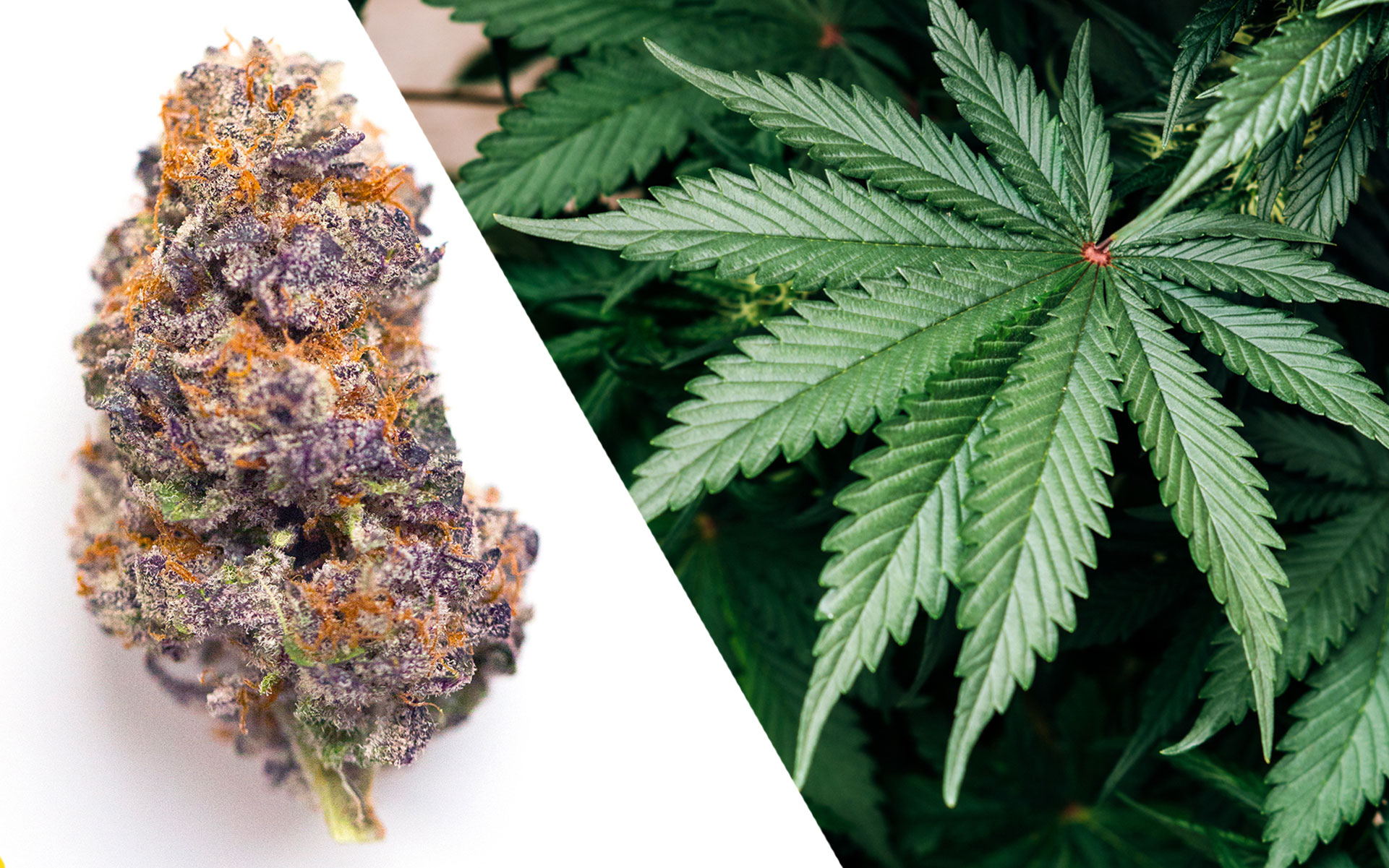What Happens if you Smoke Terpenes?

What Happens if you Smoke Terpenes?
It’s that deliciously sweet whiff of blueberries you get when you grind Blueberry OG, or a bright burst of citrus you taste when you inhale Super Lemon Haze — this is all thanks to terpenes. Terpenes are the main reason why cannabis tastes and smells the way it does. Each strain comes with its own unique terpene profile and subtle qualities.
But beyond the captivating aroma, terpenes are responsible for some of the medicinal and recreational benefits of cannabis. Depending on the terpene profile, you may feel uplifted, sleepy, social or creative. While the high may come from THC, increasingly, experts believe that terpenes help guide the total experience as well.
So can you smoke terpenes for any sort of benefit? Unfortunately, the benefits of terpenes are not as clear cut as those from cannabinoids (like THC and CBD). Different terpenes, especially when burnt at high temperatures, may even form toxic chemicals. But, if you know what you are doing, you can use a strain’s unique terpene profile to your advantage.
Here’s how.
What are Terpenes?
Terpenes are essential oils produced by plants, from citrus trees to rosemary bushes to cannabis cultivars. Cannabis connoisseurs may be totally focused on the properties of cannabis-based terpenes, but these same compounds exist elsewhere int he botanical kingdom. You can find limonene in citrus fruit, but you can also find it lemon kush bud. This terpene is the same across the botanical kingdom and is responsible for the lemony scent.
When it comes to cannabis, the same glands which produce cannabinoids like THC and CBD also produce terpenes. Together, the terpenes and cannabinoids exist in high concentrations in the trichomes covering a potent flower head. If you rub your hands over a fresh nug, you’ll get a hit of these unique aromatics.
Plants, including cannabis, produce terpenes for several reasons. First, they may make terpenes to attract pollinators or seed spreaders. Cannabis may have evolved alongside humans, using delicious smells to attract us to its flowers when they ripened. On the flip side, plants may also produce terpenes to repel predators. Some terpenes may repel insects and pests from cannabis, especially as the flowers mature.
Every single cannabis strain contains a unique terpene fingerprint. Typically any given strain will produce ten or more main terpenes. You can check a lab report to find out what terpenes your favourite flower contains.
How to Terpenes Impact the High?
Humans have been working with terpenes long before they were discovered in cannabis. Terpenes, in essential oil format, form the foundation of the aromatherapy industry and have a long history in different cultural traditions. If you use lavender oil in your bath or light a vanilla-scented candle, you are already working with terpenes too.
To date, there isn’t a ton of scientific study about the role terpenes play in the intoxication or the medicinal benefits. With that said, there is a rapidly evolving theory about how terpenes play an essential synergistic role.
That means, when you combine terpenes with cannabinoids, they work together to provide increased therapeutic benefits, over and above what you might get should you use these compounds separately.
Can You Smoke Terpenes?
If there are so many benefits to terpenes, wouldn’t it be great if you could smoke straight terpenes for medicinal value? Unfortunately, almost all the research into terpenes hasn’t explored them as smokable products. In many ways, we don’t know what goes on at the level of the terpene when you put it to a flame.
Researchers have figured out (based on other non-cannabis research) that when terpenes get hot, they don’t always have the health effects we are looking for.
For starters, if you dab live resin or other terpene-rich concentrates, many of the most prominent terpenes are totally burnt off. The temperatures are just too powerful, and the terpenes are too volatile. One study looking at the compounds created from dabbing, myrcene, limonene, linalool all completely burnt off. These are usually some of the most prevalent flavors in cannabis.
The same study also discovered some serious toxic compounds were created through dabbing. In a process known as “terpene thermolysis” (which is the breakdown of molecules after exposure to heat), the researchers found the high heat of dabbing produced some dangerous secondary compounds. As they state, “”The results of these studies clearly indicate that dabbing, although considered a form of vaporization, may in fact deliver significant amounts of toxic degradation products.”
Best Vape Temperatures to Target Terpenes
If this early research tells us anything, its that the medicinal values of terpenes discovered in other areas of research may not always be applicable in cannabis. Terpenes are far more volatile and sensitive to temperature than their cannabinoid cousins. To reap their therapeutic value, we have to pay close attention to the temperature.
The best way to hit specific temperatures is to use a portable temperature-controlled vaporizer. These devices let you, the user, set specific temperatures to target different cannabinoids and terpenes.
These are the ideal temperatures for vaporizing the compounds, but not burning them. It’s the boiling point, where the essential oils turn to a gas, which you can inhale. These temperatures avoid the risks associated with terpene thermolysis and toxic degraded compounds.
Here are a few examples of the most common terpenes in cannabis, their specific aroma, and the best temperature to target them. Plus, a few suggestions of strains with high levels of these essential oils.
Beta-Caryophyllene
Aroma: Spicy
Also found in: Rosemary
Best strain: Death Bubba
Ideal Vape Temperature: 246 Degrees
Alpha-Pinene
Aroma: Pine and conifer trees
Also found in: Pine
Best Strain: Jack Herer
Ideal Vape Temperature: 312 Degrees
Beta-Myrcene
Aroma: Spice, herbal
Also found in: Mangos
Best Strain: Blueberry OG
Ideal Vape Temperature: 347-352 Degrees
Limonene
Aroma: Citrus, lemony
Also found in: Lemons
Best Strain: Lemon kush bud
Ideal Vape Temperature: 350 Degrees
Linalool
Aroma: Floral, herbal
Also found in: Lavender
Best Strain: Amnesia Haze:
Ideal Vape Temperature: 388 Degrees
Terpineol
Aroma: Floral
Also found in: Tea tree
Best Strain: Girl Scout Cookies
Ideal Vape Temperature: 428 Degrees
Terpenes For Synergistic Benefit
If you want medicinal benefits from the terpenes contained within lemon kush bud, don’t smoke it. Instead, check out the terpene profile of these super-sour buds and compare them with the best vape temperatures. Pack it into your portable vape device, set the temperature, and get vaping.
By targeting terpene-specific temperatures, you avoid terpene thermolysis and the potential risks of toxic new compounds. Plus, you get to taste the real flavour of the flower.

